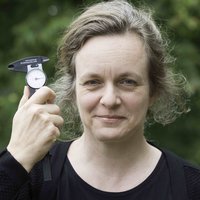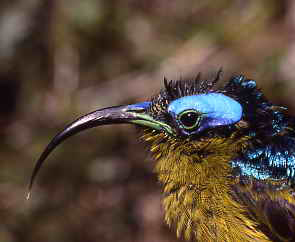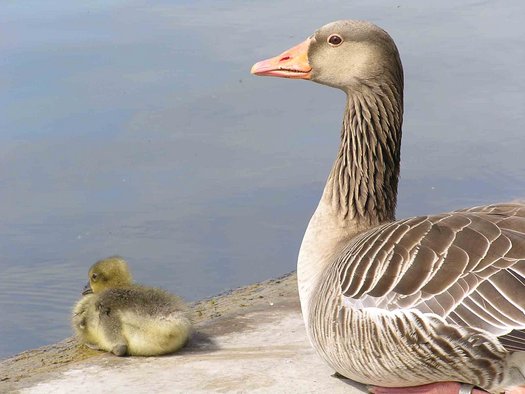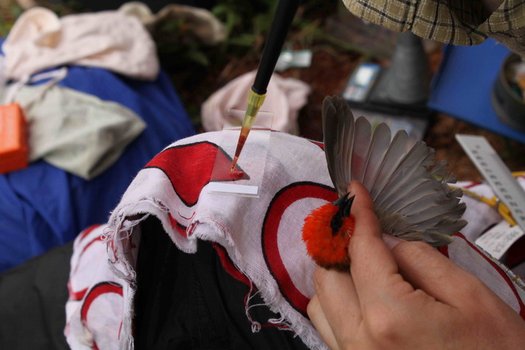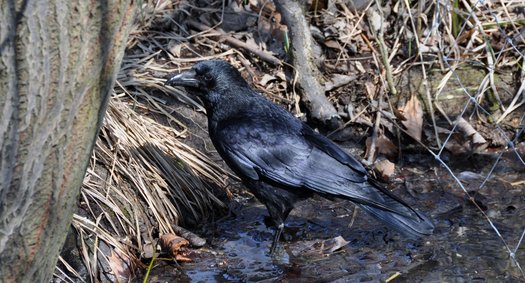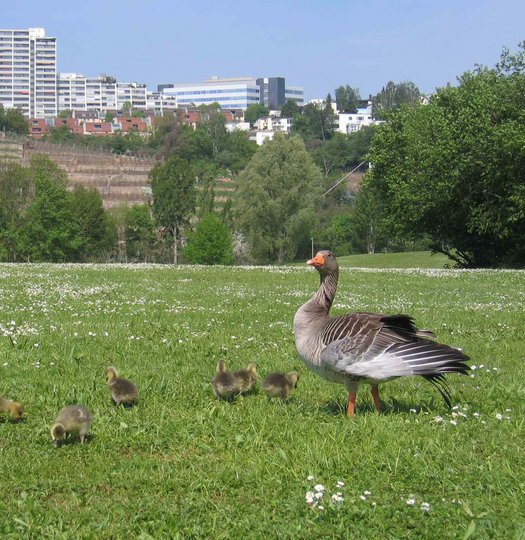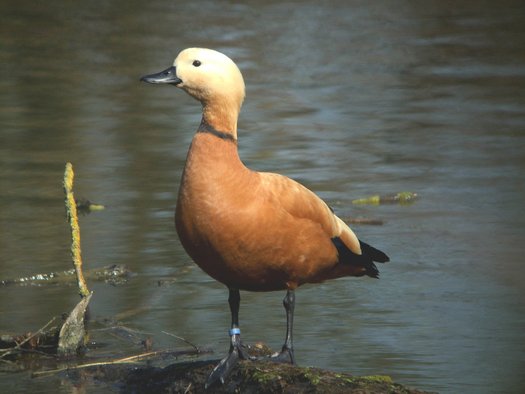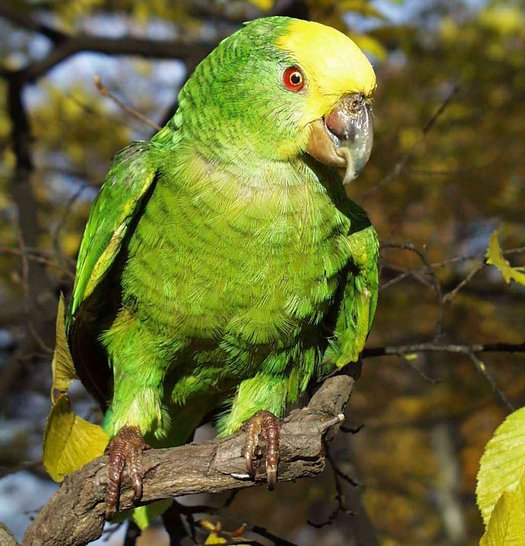Madagascar is the fourth largest island in the world and because of its long isolation from the mainland known for a high number of endemic species. Since 2003 scientists from the Natural History Museum in Stuttgart cooperate with ornithologists from the University of Antananarivo to investigate various aspects of the birds that occur in the rainforest of Maromizaha. Recently, the avian blood parasites and their vectors, various mosquito species, have come into focus. Cooperating scientist from the University of Stuttgart-Hohenheim managed to extract parasite DNA of from a drop of blood that had been taken in the field from the birds’ wing vein. In birds sampled in 2012, over 50 % had blood parasites comprising the genera Plasmodium, Haemoproteus and Leucocytozoon. This is a very high prevalence for birds and we are now able to relate individual traits of the birds and ecological parameters to parasite prevalence. In 2014 we started to investigate the vectors of Plasmodium in the rainforest. Mosquito scientists from the Institute Pasteur Madagascar joined our team in the forest. They put up light traps during the night and identified the mosquitoes they caught the next morning. Even a new mosquito species was found. The dried (and identified) mosquitoes were brought to Germany were Sandrine Schmid from the Institute of Parasitology of the University Stuttgart-Hohenheim managed to extract the same Plasmodium lineages from the mosquitoes that we had previously found in the birds. The new mosquito species even turned out to be the most important vector in that area. If you want to find out more about this project, please see https://www.naturkundemuseum-bw.de/forschung/science-blog/von-voegeln-blut-muecken or our paper "Avian malaria on Madagascar: bird hosts and putative vector mosquitoes of different Plasmodium lineages" in Parasites & Vectors: http://rdcu.be/olpg
Kooperationspartner in Madagaskar: Ministère de l’Environnement, des Eaux et Forêts, l’Université d’Antananarivo, Faculté des Sciences, Mention Zoologie et Biodiversité Animale (MZBA), GERP, Institut Pasteur; in Deutschland: Universität Hohenheim, Institut für Zoologie, Fachbereich Parasitologie
